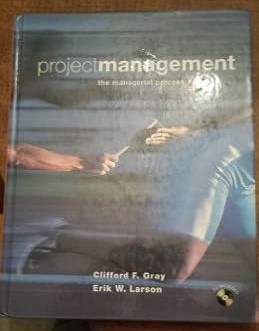Question
How to Respond to the COVID-19 Pandemic with More Creativity and Innovation The COVID-19 pandemic is a wicked problem that is characterized by multiple competing
How to Respond to the COVID-19 Pandemic with More Creativity and Innovation
The COVID-19 pandemic is a wicked problem that is characterized by multiple competing problems that seem to conflict with each other, such as protecting lives versus preserving livelihoods. However, this problem can potentially be addressed through more creativity and innovation, which has already begun in response to the pandemic. Some innovations have helped reduce exposure to the coronavirus, such as alcohol distilleries producing hand sanitiser, and do-it-yourself makers 3D printing face shields as well as social distancing practices. Other innovations have helped increase health care capacity, such as engineering firms creating new ventilator machines, and pharmaceutical companies repurposing existing drugs to alleviate COVID-19 symptoms. To help solve this global, wicked, and dynamically changing problem, the public health sector must continue to support, promote, and even expand on these innovative efforts by using creative problem-solving techniques. To do so, the sector needs to broaden its norms, processes, and infrastructures by adapting its views on uncertainty. For example, in a 2017 survey of local and state governmental public health department employees, less than half reported that creativity and innovation were rewarded at work, which is an essential condition for creativity in organizations. Therefore, it is recommended that people from all levels and domains of public health, from frontline health workers to government leaders, must not only try to reduce the uncertainty during decision-making but also embrace uncertainty as they search for new and better solutions to problems Creativity and innovation refer to different stages of the same underlying process. Creativity involves producing novel and useful ideas to solve a problem, and innovation involves implementing and refining those ideas to create a tangible product, process, service, or technology that an end-user can adopt. In the COVID-19 context, creativity may involve any effort to produce new ideas aimed at solving a problem related to the pandemic, and these ideas become innovations after they have been fully developed into an outcome that benefits an end-usersuch as hand sanitiser, ventilators, or face masks.
Question According to the case study, there is a great need for the public health sector to support and promote innovative efforts using creative problem-solving abilities to solve COVID-19 dynamically changing problems. Evaluate how the South African government responded to the Covid-19 challenges and discuss the socio-economic impacts of those responses. Give suggestions on how problem-solving abilities like creativity, logic, and intuition could have assisted the government with Covid-19 challenges. (20 marks)
Step by Step Solution
There are 3 Steps involved in it
Step: 1

Get Instant Access to Expert-Tailored Solutions
See step-by-step solutions with expert insights and AI powered tools for academic success
Step: 2

Step: 3

Ace Your Homework with AI
Get the answers you need in no time with our AI-driven, step-by-step assistance
Get Started


